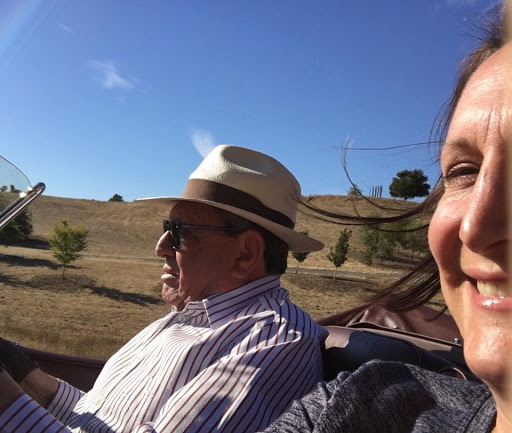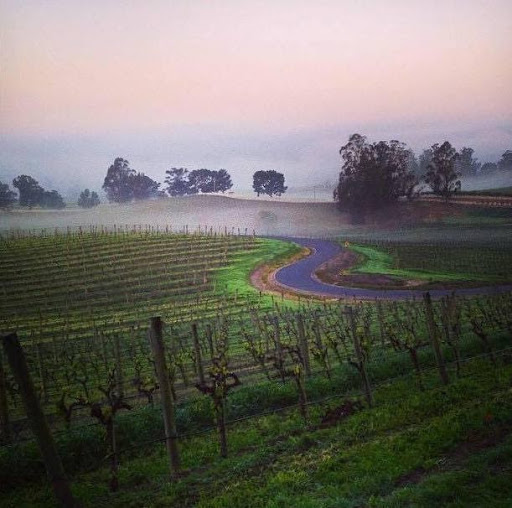You were 18 years old, living in Mexico City and just about to enter college when your father purchased 650 acres of land in Petaluma. As a teenager, were you excited about spending time in California? Did you ever think you’d one day be responsible for growing and selling grapes and being in the California wine industry?
I’ve always loved plants, and I kept a collection of cactus and succulents. However, I had no idea this would become my life. Later, as a student, I took a wine appreciation course and liked it, but it didn’t bite me then. It wasn’t until I came to Sonoma and had to work on our first stuck fermentation that I was hooked. It was then, that I feel in love with wine.

Photo: Courtesy Keller Estate
You have three siblings, yet you are the person in charge of running the vineyard and winery for the family. How did your transition into this role come about and what life changes did you need to make in order to take the reins?
I am the youngest of four. By the time this project came about my siblings already had their working life organized, yet I was just out of college. It was hard at the beginning, being a 27 years old young woman, new to the business and with a solid chemistry background, but no sales or marketing experience. I had great mentors — Ted Lemon, but certainly the most important mentor was my dad. He still is, at 88, staying healthy and in isolation as we speak!

Photo: Courtesy Keller Estate
When your father purchased the property, he originally envisioned it as a second home and a place to enjoy working on his cars. What caused him to decide to plant wine grapes, which had not previously been done in what is now known as the Petaluma Gap?
They wanted to incorporate agriculture to the project and got curious about growing grapes because they drove their cars around Napa and Sonoma and loved seeing the vineyards.
As the story goes, your family originally planted Chardonnay, on the advice of UC Davis and the idea that if the grapes didn’t fully ripen, that you could at least sell them for sparkling wine. When did you realize that you’d made a great decision planting Chardonnay and what was the first growing season like?
The first vintage was in 1993! The Chardonnay grapes were sold to Rombauer, they let us know very clearly from the start that they did not know what quality we could expect. Fortunately, the fruit was great, showing the gorgeous minerality and acid that is a trademark of our La Cruz Vineyard. For the first few years, we sold all our fruit to them. By 1996 we were very confident! I actually got married in 1997 and we were able to serve Chardonnay from our property.
Recently you’ve started practicing organics and biodynamics. You also have a flock of sheep that graze in the vineyards. How does your team feel about these changes and what prompted you to go this direction? Have you noticed a difference in the quality and flavor profile of the fruit as a result?
We decided that we need to farm our wines and work from the soil up. This is the approach that we have taken, when we look for the different tools that organic and biodynamic farming offers.
My focus was to really incorporate organic matter into our heavy clay soils and eliminate the use of Round Up was also a big priority for me. The hardest part was that we had to change the way we approached problems. We no longer had the “conventional” toolbox. Once we eliminated that toolbox, change came easier.
Our sheep was truly a 5-year project. We started with 20 Baby Dolls and we now, have a different breed, called Dorper and are up close to 300. We found a great partner who grazes them on our land we are fertilizing and mowing at the same time.

Photo: Courtesy Keller Estate
How involved are you in the vineyard work and the winemaking? How do you balance being a mom, a wife, and Keller’s estate director while also going on the road to sell wine? You must be a champion at multi-tasking!
Balance? Who said such thing can be achieved anywhere else than wine! First, I have a great partner in crime, my husband is very much part of the solution to the confusion. I just know I can’t do everything well all the time, and I routinely move priorities around, so that everything that is important to me at one point or another is receiving my full attention. Since the beginning I’ve been in charge of our entire operation, so I’ve had my hand in everything, from vineyard management, to winemaking (focusing more on stylistic decisions), and sales.
Some time ago, you were the President of the Petaluma Gap Winegrowers Alliance. What are you most proud of during your tenure on the board and how long do you think it will take for wide-spread recognition of the high quality of Petaluma Gap grown fruit?
My fondest memory, or rather, my aha moment, was when we decided to hold a tasting of Petaluma Gap–grown wines. I remember discussing with the board, to ask the wineries supplying the samples that they have at least 75% Gap fruit. By the time we held the tasting, we had almost 50 bottles of 100% Petaluma Gap fruit. That was when I realized it was going to be successful. It wasn’t the most relevant moment, it wasn’t even a public moment, but for me it was the beginning. We can’t sit on our laurels, we have to continue growing better grapes, telling our story, and getting people to taste and understand our region.
In a previous interview we heard you say that you are always tickled when dining in a restaurant and you see someone at a nearby table order a bottle of wine that came from Keller Estate. When that happens do you introduce yourself to the neighboring diner? Do you have any stories to share about this experience?
I think one of my first times was at Wild Goat Bistro in Petaluma. When I saw our bottle being brought out, I was so surprised! I actually got up and thanked them for ordering our wine. Every time since then, I’ve been doing that!
The grape glut is a daily news item and some growers are in the unfortunate position of having unsold fruit. What advice do you have for them to weather the storm?
Quality, quality, quality. At the end of the day, good fruit can be sold.
It’s been almost a generation since your family acquired Keller Estate. You have three teenage sons; do you want them to follow in your footsteps? Are they showing any interest in doing so?
My sons are used to hearing wine, marketing, the vineyard and business as topics of conversation most days of our lives. I know it will be a part of theirs, but exactly how, we don’t know. I really want them to go out and explore the world. I’ll be here for a while, I’m patient.
